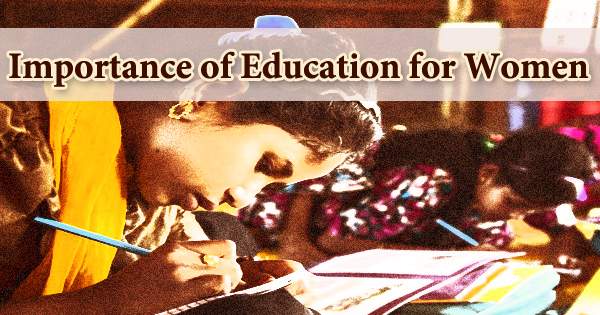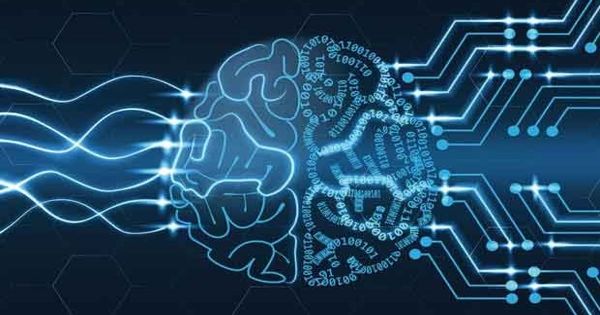For both men and women, education is necessary and valuable. It is an extremely important method for success in today’s world. It is important because it is used to mitigate the majority of life’s difficulties. Training provides information that opens doors to a plethora of possibilities for bettering one’s career prospects. Female education is a catch-all word for a diverse collection of issues and controversies concerning education for girls and women (including primary, secondary, and tertiary education, as well as health education). It’s sometimes referred to as “girl’s education” or “women’s education.” Around the world, 65 million girls are out of school, the bulk of whom live in developing and underdeveloped countries. All countries around the world, especially developing and underdeveloped countries must take steps to improve female education because women can play a critical role in a country’s growth. Women’s and girls’ education has a major impact on poverty reduction. Single-sex education and religious education for women, both of which are segregated along gender lines, are more general subjects. In most cultures, women are the primary caregivers for newborn children. During the first three years of life, the infant is more likely to be watched over by a paid nanny, an indulgent grandma, or an older sibling. The baby has more direct contact with women from the womb to its early formative years. The caregiving woman’s words, unspoken messages, and desires have the greatest impact on and decide the child’s future destiny during this period. Improving girls educational levels has been shown to have a positive effect on young women’s health and economic opportunities, which in turn increases the community’s prospects. Infant mortality is half as high in babies whose mothers have completed primary school as it is in infants whose mothers are illiterate. Education for girls has been described as one of the best options for reversing the persistent trend of poverty and disease that is ravaging large parts of Sub-Saharan Africa for over a decade. Not only does ensuring that girls have access to education explicitly boost the viability of the Millennium Development Goals (MDGs) 2 and 3, but it also has a positive effect on the other six Goals. Women are the soul of a society, and how women are handled can be used to determine a society. An educated man goes out to improve society, while an educated woman improves her home and its inhabitants, whether she goes out or stays at home. In a culture, women play several roles: mother, wife, sister, caregiver, nurse, and so on. They have a greater understanding of the social structure and are more compassionate about others’ needs. A well-educated mother will ensure that her children are well-educated, and will value a girl’s education equal to that of a boy.
The importance of women education are briefly summarized below:
- Economic development and prosperity: Women will be empowered by education to step forward and contribute to the country’s growth and prosperity. The powerless state of women cannot be improved as long as they remain backward and economically dependent on men. Women would only be able to achieve economic empowerment and independence if they are properly educated and employed.
- Improved life: Education improves a woman’s ability to live a happy life. Her individuality will never be compromised. She has the ability to read and learn about her rights. Her interests will not be infringed upon. Women’s lives and conditions would vastly improve if we took a broad approach to female education.
- Improved health and hygiene: Women are more concerned with their family’s health than men, and they also have a strong sense of hygiene. And working women are constantly worried about the welfare of their families and will not put it at risk. Men work for free, with just the burden of making money, because they know that everything else in the house is taken care of because of the women in the house. As a result, it is important that the woman who is responsible for the family and your children is prepared, so that she knows health risks and is confident enough to take precautions to avoid them.
- Dignity and honor: Women who have received an education are now treated with respect and honor. They become role models for millions of young girls who look up to them for inspiration.
- Justice: Educated women are better informed about their legal rights. It will ultimately lead to fewer cases of abuse and discrimination against women, such as dowry, forced prostitution, child marriage, and female foeticide, among other things.
- Self-reliance: Education makes a woman self-sufficient, which means she is not dependent on others for her own life or that of her children. She understands that she is trained and capable of working alongside men to support her family. A financially self-sufficient woman should speak out against inequality and exploitation.
- Alleviate poverty: Women’s education is a prerequisite for poverty alleviation. Women must bear an equal share of the enormous challenge of eradicating poverty. This will necessitate a significant contribution from trained females. Without the right to education for girls and women, there will be little social and economic improvements.
- Income Potential: Education also strengthens a woman’s wallet by increasing her earning potential. According to the United Nations Educational, Scientific, and Cultural Organization, or UNESCO, a single year of primary education will boost a girl’s earnings by 20% later in life.
- Eliminating crime against women: Educating women will easily eradicate many social evils and crimes against women. Dowry, flesh trade, female infanticide, and other undesirable customary practices can all be avoided by educating a society’s women. In a civilized family, an educated woman has a significant impact on the members’ thoughts and beliefs. She is unlikely to remain quiet about domestic abuse against other women or girls in the family, and she will undoubtedly contribute to the strengthening of society’s social fabric. Female infanticide is a felony under the law, and it is also prohibited by every religion. An intelligent woman would never agree to it.
A woman’s (and her partner’s and family’s) level of health and health literacy improves with education. Women with higher levels of education and advanced training are more likely to postpone sexual intercourse, first marriage, and first childbirth. Women’s education is also vital for their health, as it increases contraception use while reducing sexually transmitted diseases and expands the services available to women who divorce or are victims of domestic violence. Women’s contact with partners and employers, as well as political engagement rates, increase as a result of education. History is replete with examples of communities that prospered and expanded socially and economically when women were treated similarly to men and were educated. It would be a mistake to neglect women in our efforts to achieve sustainable growth, which can only be accomplished if both genders are given equal opportunities in education and other fields. Women become more self-assured and ambitious as a result of their education; they become more conscious of their rights and are able to speak out against injustice and abuse. A society can’t advance if its women are quietly crying. They must use education as a weapon to carve out a progressive direction for themselves and their families. Women’s education will also prepare them to become political leaders who will campaign for other women’s rights and justice. Women in positions of power, such as politicians and bureaucrats, will more effectively combat discrimination and other crimes against women, resulting in a more equal society. A well-educated woman can make a positive difference in her own home as well as in society. She is more likely to send her children to school, thereby increasing the literacy rate in the country. Aside from improved health and hygiene, increased national economy, and so on, there are several other benefits to educating women. No country will truly grow if its women are left behind in terms of education.
















